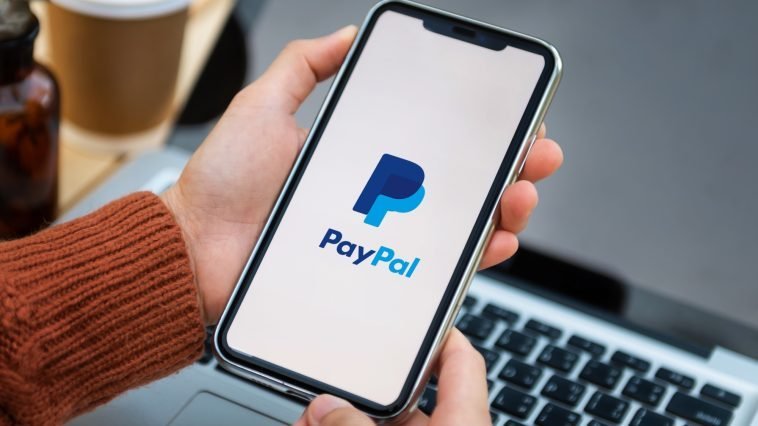Introduction.
Freelancing has become a major way for people to earn money online. Whether you’re a graphic designer, a writer, a developer, or a virtual assistant, freelancing offers flexibility and opportunities.
But if you’re planning to get paid for your work, you’ll need a reliable way to receive payments. That’s where PayPal comes in.
PayPal is one of the most popular online payment systems, trusted by millions of freelancers around the world.
It allows you to send and receive money, pay for services, and even get paid by clients without worrying about currency conversions or security issues.
But, if you’re new to freelancing or just haven’t set up your PayPal account yet, you might be wondering: How exactly do I create a PayPal account for freelancing?
Don’t worry, I’ve got you covered. This guide will walk you through the steps of creating a PayPal account, what you’ll need to know before signing up, and how to make sure your PayPal account is set up properly for receiving freelance payments.
Why You Need PayPal for Freelancing
If you’re freelancing, you’ll likely be working with clients from all over the world. With PayPal, it’s super easy to send and receive payments internationally without needing to deal with complicated bank transfers or high fees. PayPal also offers buyer protection, which adds an extra layer of security to your transactions.
Not only that, but PayPal also allows you to quickly access your funds. Once a payment is made, you can transfer money to your bank account or use the funds for other online purchases.
It’s a convenient, reliable, and secure option for freelancers who want a simple way to handle their payments.
How Do I Create a PayPal Account for Freelancing?
Now, let’s get to the good stuff — how to create your PayPal account! It’s a pretty straightforward process, so let’s dive in.
1. Go to PayPal’s Website
First, you need to head over to the PayPal website. You can do this by typing www.paypal.com into your browser.
2. Choose Your Account Type
Once you’re on the PayPal homepage, click on the “Sign Up” button, which is usually located at the top-right of the screen.
PayPal will ask you to choose between two types of accounts: a Personal account and a Business account.
For freelancing, you’ll likely want to select a Business account. Even if you’re working solo, a business account will give you more control over invoicing, reporting, and the ability to accept payments under a business name. It’s especially useful if you’re planning to scale up your freelance work.
3. Fill Out Your Personal Information
Next, you’ll need to enter some basic details. This will include:
- Your name: Make sure it matches the name on your official documents (like your ID or bank account) for verification purposes.
- Email address: This will be the main way clients and PayPal will contact you, so use one that you check often.
- Password: Pick something strong and unique to keep your account secure.
PayPal will also ask for your phone number to help with security and to ensure they can contact you in case there are any issues with your account.
4. Add Your Business Details (For Freelancers)
Even if you’re not running a large company, PayPal will ask for a bit of info about your freelance business. This typically includes:
- Your business name: This is the name you’ll be using when invoicing clients or accepting payments.
- Business type: Choose the option that best describes your freelancing career (like Self-employed or Freelancer).
PayPal uses this information to help you set up your payment preferences and taxes, so don’t skip this step!
5. Link Your Bank Account or Credit/Debit Card
Now, it’s time to link a payment method to your PayPal account. You can either link a credit or debit card or a bank account.
Linking a card or bank account allows you to withdraw money from PayPal and transfer it to your local bank or use your PayPal balance for purchases.
To link a bank account:
- Choose the “Link Bank” option and follow the prompts to input your bank details.
- PayPal will typically ask for your bank’s routing number and your account number.
If you choose to link a card, simply enter your card number, expiration date, and security code. Once linked, you’ll be able to send and receive payments without worrying about limits.
6. Verify Your Account
To start receiving payments, you’ll need to verify your PayPal account. This step helps confirm your identity and ensures that everything is secure.
PayPal will usually ask you to verify your email address by clicking on a link they send to your inbox.
You might also need to verify your bank account or card, depending on your country. If you’re linking a bank account, PayPal will send two small deposits into your account, and you’ll need to confirm the amounts on the PayPal site. This is a quick process but is essential for making sure everything works smoothly.
7. Set Up Your Preferences
Once your PayPal account is verified, you can tweak a few settings:
- Currency preferences: If you’re working with international clients, it’s a good idea to choose the currencies you want to accept.
- Payment notification settings: You can choose to get email alerts for every payment you receive or customize how often you get notified.
This is where you can also choose to integrate your PayPal with other platforms like invoicing tools or websites, which makes managing payments a lot easier.
8. Start Using Your PayPal Account
Congrats! You now have a fully functional PayPal account. You can start sending and receiving payments from your clients.
Whenever you get paid, you can either keep the money in your PayPal balance or transfer it to your linked bank account.
PayPal offers a lot of options for freelancers, from sending invoices to managing recurring payments.
You can also integrate PayPal with platforms like Upwork, Fiverr, or Freelancer to receive payments directly from clients.
How to Make Your PayPal Account More Professional
While setting up your account, you may want to take a few extra steps to make your PayPal account look more professional to clients. Here are a couple of tips:
- Set up a business email: Instead of using a generic Gmail or Yahoo account, set up an email that looks more professional and is connected to your business.
- Add a business logo: If you’re using PayPal to accept payments under a business name, consider adding a logo to make your profile look more polished.
- Send invoices: PayPal allows you to create and send professional invoices to your clients, which helps you keep everything organized and track payments easily.
FAQs
1. Can I use PayPal without linking a bank account?
Yes, you can receive payments via PayPal without linking a bank account. However, if you want to transfer funds to your bank or use PayPal for purchases, linking a bank account or card is recommended.
2. How do I invoice clients on PayPal?
You can create and send invoices directly through PayPal. Just go to the “Tools” section of your PayPal account, click on “Invoicing,” and fill out the details like the amount, description of services, and due date.
3. Are there fees for using PayPal for freelancing?
Yes, PayPal charges fees for transactions, especially for international payments. The standard fee is around 2.9% + a fixed fee based on the currency you receive. You can find more details on PayPal’s official fee page.
4. Can PayPal help me with tax reporting?
Yes, PayPal provides transaction reports that you can use to track your earnings for tax purposes. These reports can be downloaded and shared with your accountant.
Conclusion
Creating a PayPal account for freelancing is an essential step in making sure your payments are smooth and secure.
With its simple setup and wide acceptance, PayPal is a go-to option for many freelancers. So, now that you know how to get your PayPal account set up, are you ready to start getting paid for your work?





GIPHY App Key not set. Please check settings